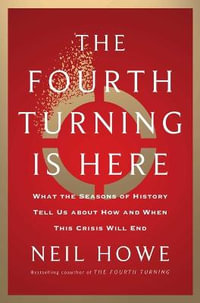In the 1920s, many of Cuba's intellectuals, like Jorge Ma±ach, were confronted with how to deal with a new postcolonial universe whose neocolonial leanings were undeniable. A palpable unease runs throughout An Inquiry into Choteo (first delivered as a lecture in 1928), as Ma±ach anxiously attempts to explain this idiosyncratic Cuban attitude or humor that he deems prevalent in the first few turbulent decades of the 20th century. Esteemed in the Spanish-speaking world, only two of Ma±ach's writings, Mart: Apostle of Freedom, 1950 and Frontiers in the Americas: A Global Perspective (1970), have been published in English-a language which, as an adolescent in Massachusetts, Ma±ach inhabited, and from which he translated throughout his life. The fact that Ma±ach is a difficult figure to pin down, textually and ideologically across his life, is part of Jacqueline Loss's motivation to carry out this translation of An Inquiry into Choteo, one of the most authoritative essays in Spanish, comparable to other classic meditations on Latin American and national identity such as Jos© Enrique Rod³'s Ariel (1900, English 1988), Antonio S. Pedreira's Insularismo: An Insight into the Puerto Rican Character (1934, English 2007), and Octavio Paz's The Labyrinth of Solitude (1950, English 1962). While Ma±ach suggested that the pervasiveness of choteo, with its positive and pernicious dimensions, waned by the time of his revision in 1955, An Inquiry into Choteo is all the more relevant in the 21st century, especially within a comparative context, wherein banners of ideology and egalitarianism sometimes obscure the racial and class tensions that reside right below the surface. Analysis of geopolitical maneuverings alone are insufficient to elucidate the intricacies of relationships that emerge, in such texts as Ma±ach's An Inquiry into Choteo.
The Translator
Jacqueline Loss is a professor of Latin American Literary and Cultural Studies at the University of Connecticut. She is the author of Dreaming in Russian: The Cuban Soviet Imaginary (2013) and Cosmopolitanisms and Latin America: Against the Destiny of Place (2005) and co-editor of Caviar with Rum: Cuba-USSR and the Post-Soviet Experience (with Jos© Manuel Prieto, 2012) and New Short Fiction from Cuba (with Esther Whitfield, 2007). Her essays and translations have appeared in Nepantla, Chasqui, Latino and Latina Writers, La Habana Elegante, New Centennial Review, Bomb, La Gaceta, Kamchatka, Words Without Borders, The Brooklyn Rail, among other publications. The Spanish translation of Dreaming in Russian: The Cuban Soviet Imaginary is forthcoming in Almenara Press.
























